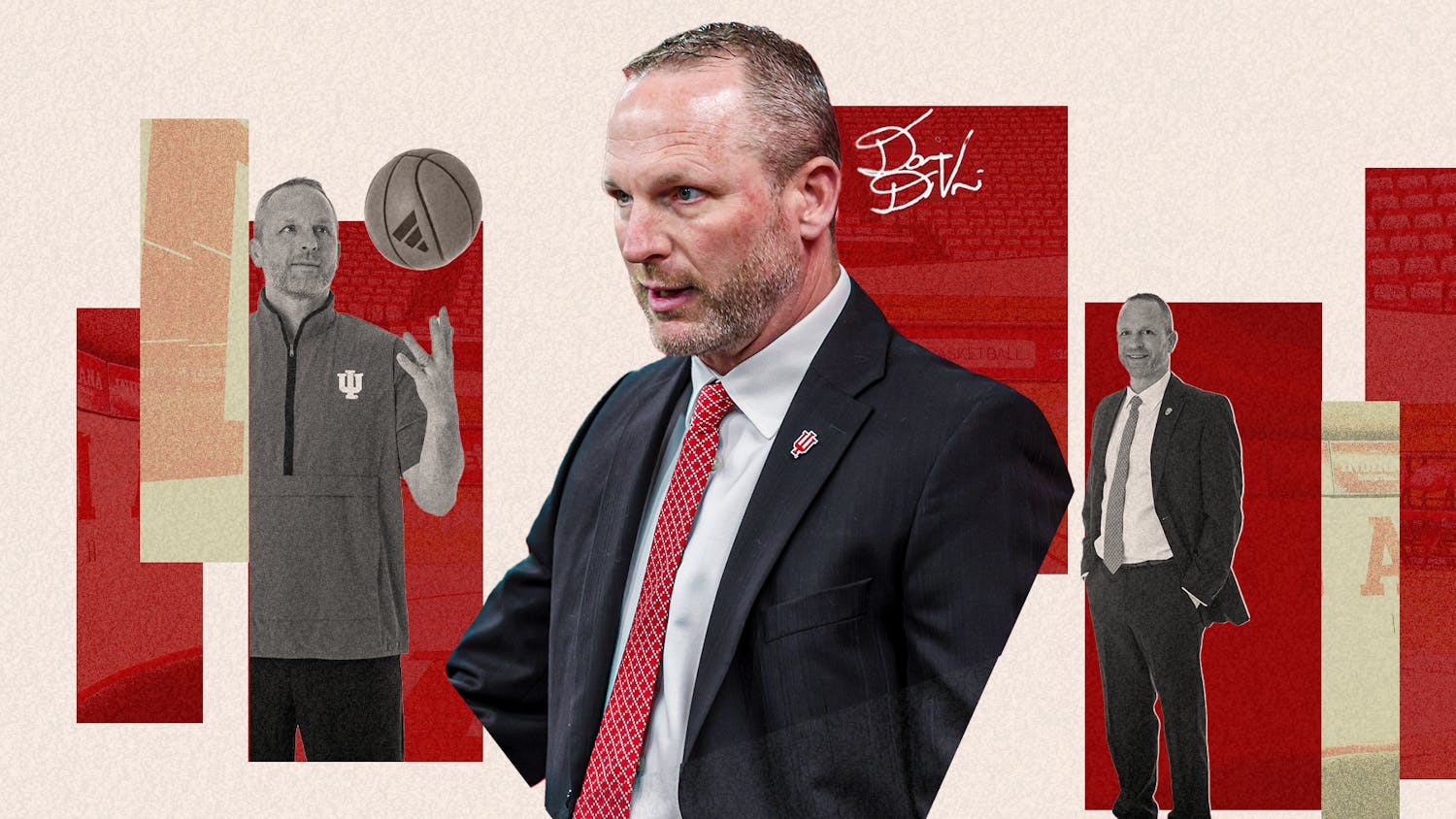Thousands of fans stand in the bleachers of Bill Armstrong stadium cheering on the riders as the white flag is flown, signaling the final lap of the 2019 Little 500 women’s race.
The pack is narrowed down to three teams: Ski, Teter and Delta Gamma, all fighting for the first place trophy. Ski eventually drops back as Teter and Delta Gamma are the last two teams left cycling around the track. In a whirlwind finish, only .203 seconds determines who is hoisting up the first place trophy at the end of the race.
Corrine Miller described racing in the Little 500 last year as the best day of her life. She was only a freshman when her team, Teter Cycling, won the 2019 Little 500. Miller and teammate Erika Wilson both agreed that when the race was over, they felt like they were a part of IU history.
A week ago, Miller released a petition calling for a remake of “Breaking Away,” an Oscar-winning movie made in 1978 that was based off of the men’s race. The film tells a fictional story of four local Bloomington boys, nicknamed “the Cutters” inspired by limestone cutters, who do not attend college and are made fun of by IU students, but are eventually invited to race in the Little 500.
The men’s race started in 1951 to raise money for student scholarships. After years of petitioning and campaigning, a women’s race was established in 1988.
Previously, the women participated in tricycle races, which Miller said required significantly less skill than what the men endured in the actual Little 500, thus demonstrating the first accounts of sexism associated with the event.
In the months following the team’s historic run, Miller couldn’t stop brainstorming ideas about how they could increase popularity and attendance for the women’s race.
Race tickets are $35, and they buy someone admission to both races, yet there are historically fewer fans at the women’s race compared to the men’s.
Despite the countless hours of indoor and outdoor riding and miles upon miles of training, Miller was troubled by the fact that after 32 years of the women’s race, people still held doubts about whether women were as qualified as the men.
“Male riders and Bloomington residents in general have told me that the women’s race isn’t the ‘real race,’ or that the men’s race is the ‘real race’ or ‘more important,’” Miller said. “I’ve gotten that too many times to be acceptable.”
Miller has faced gender discrimination from firsthand experiences, and she knew she wouldn’t be able to sit back and let it go on any longer.
According to her petition, Miller states that the creation of a female movie could fuel attendance and interest in joining women’s teams, therefore increasing revenue that funds student scholarships. It would also aid in weakening sexism in women’s sports in general.
However, Miller’s idea for the movie is not an exact remake of “Breaking Away,” but it reflects the same general theme of a passionate cycling team breaking away from discrimination and stereotyping.
In 1987, a year before the women’s race was officially established, a group of female Kappa Alpha Theta members attempted to qualify for the men’s race. Though coming close to qualifying, they ultimately fell short of the qualifying time.
This action was one of the leading factors in proving that women were just as capable to cycle in the race as men. Miller proposes that this story would increase awareness for women’s cycling and believes many people would be interested in seeing a film adaptation.
The petition has almost 300 signatures to date. It can be found here.
“The ultimate goal would be for them to remake a movie, but that would take time and money,” Miller said. “So, the first goal is to just start the conversation. We hope that it will inspire women to join teams, inspire people to go to the women’s race and attend female sports and then hopefully remove some of the unconscious sexism that is in a lot of people’s minds.”




